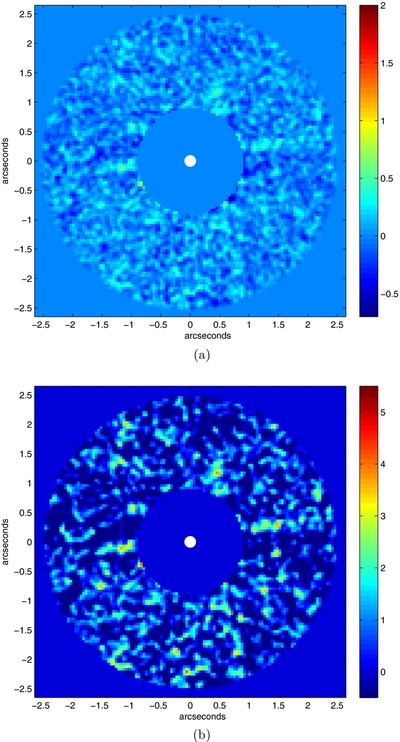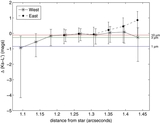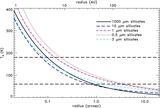Image Details

Caption: Figure 2.
(a) Final
L′ image of the disk obtained with LMIRcam, in units of mJy arcsec
−2, with north up, east left. The white dot marks the location of the star and represents the size of a resolution element at
L′. For display purposes, a 0
![]() 9 radius mask has been added in post-processing. The image has been smoothed by a Gaussian kernel with FWHM = λ/D and binned
by a factor of four to bring out the disk. At
L′ the disk is mostly symmetric and is equally bright on both sides. These features are nearly opposite to what is seen at
the
Ks band and at shorter wavelengths. (b) SNRE map of the final
L′ image shown above. The disk is detected at SNRE ~ 2.5 between ~1 and 1
9 radius mask has been added in post-processing. The image has been smoothed by a Gaussian kernel with FWHM = λ/D and binned
by a factor of four to bring out the disk. At
L′ the disk is mostly symmetric and is equally bright on both sides. These features are nearly opposite to what is seen at
the
Ks band and at shorter wavelengths. (b) SNRE map of the final
L′ image shown above. The disk is detected at SNRE ~ 2.5 between ~1 and 1
![]() 5 on both sides.
5 on both sides.
Copyright and Terms & Conditions
© 2012. The American Astronomical Society. All rights reserved.












